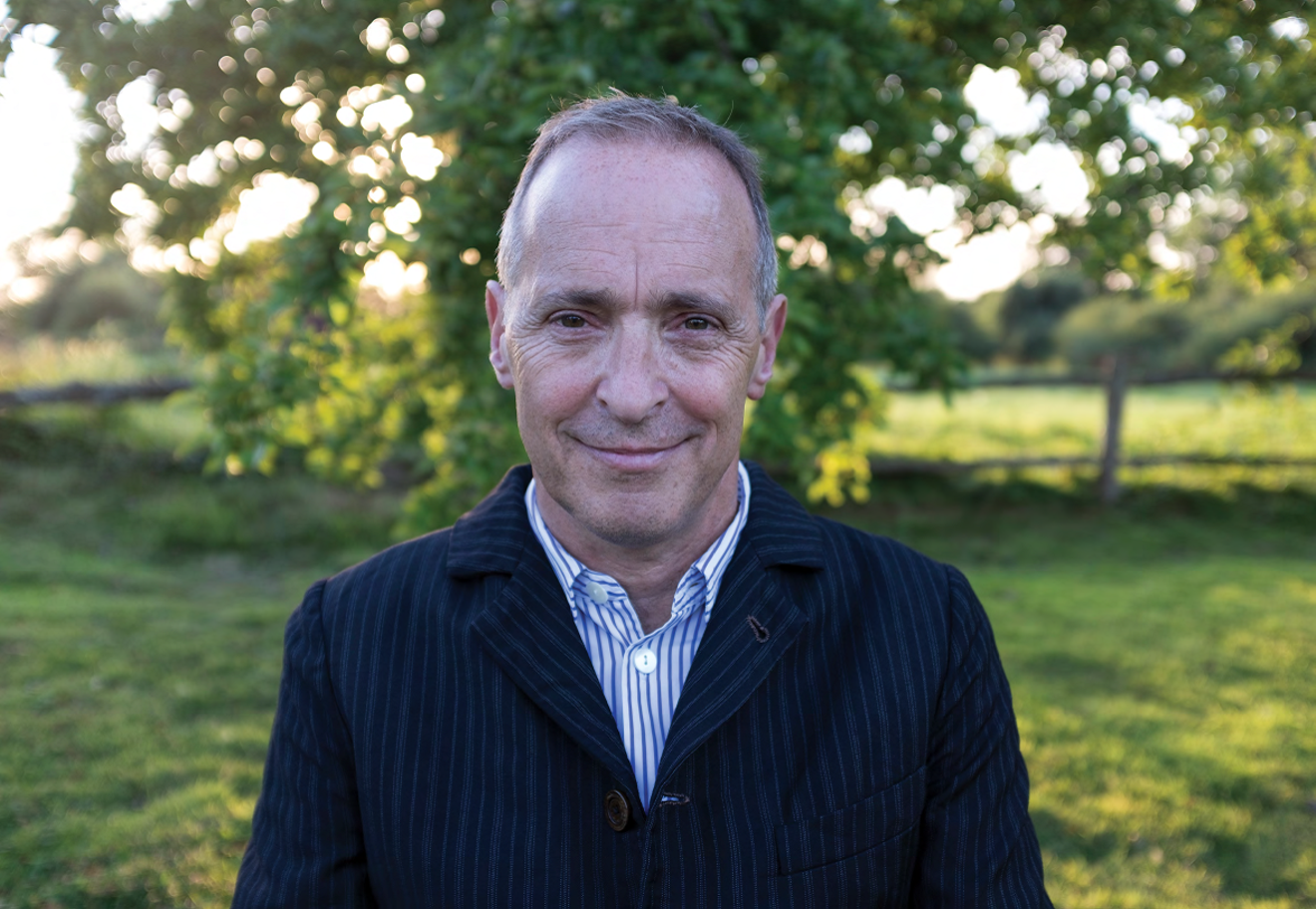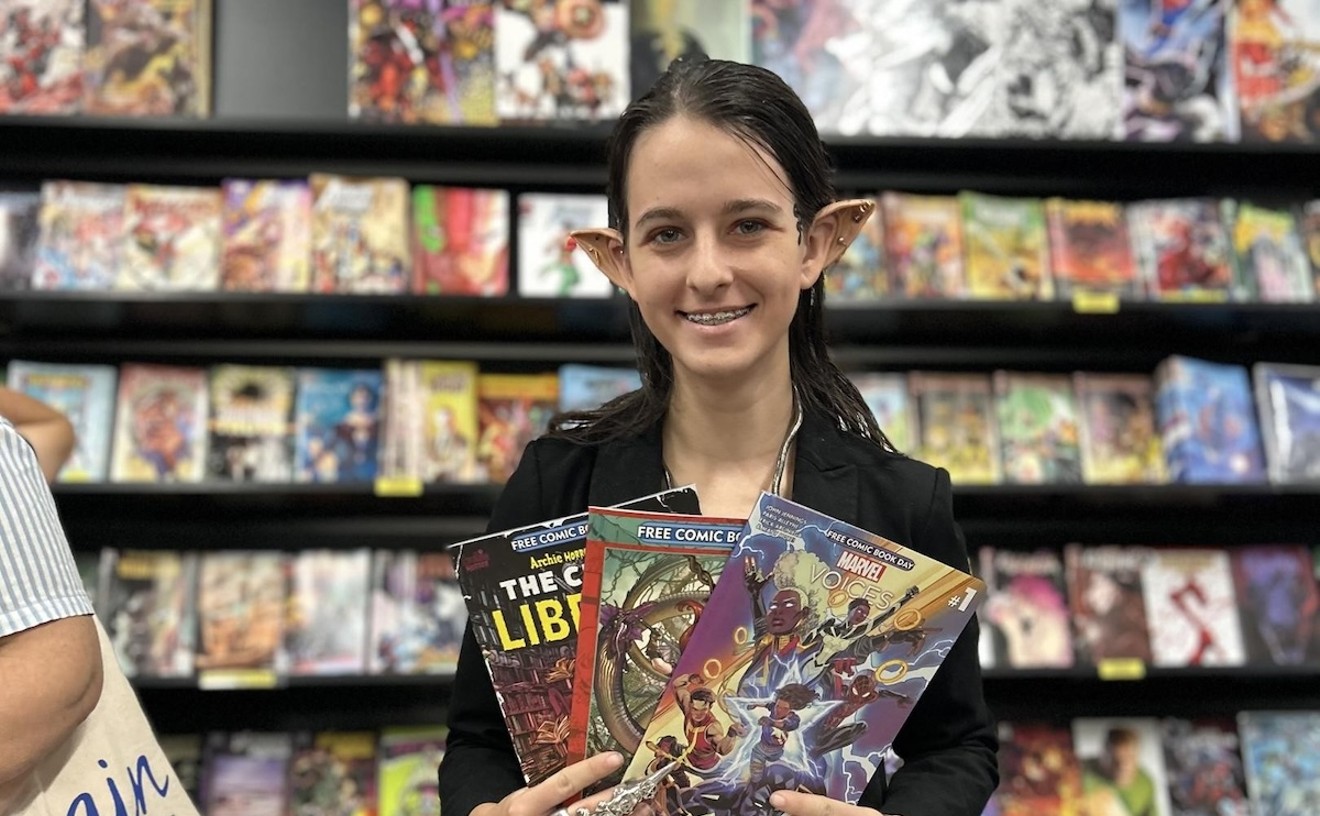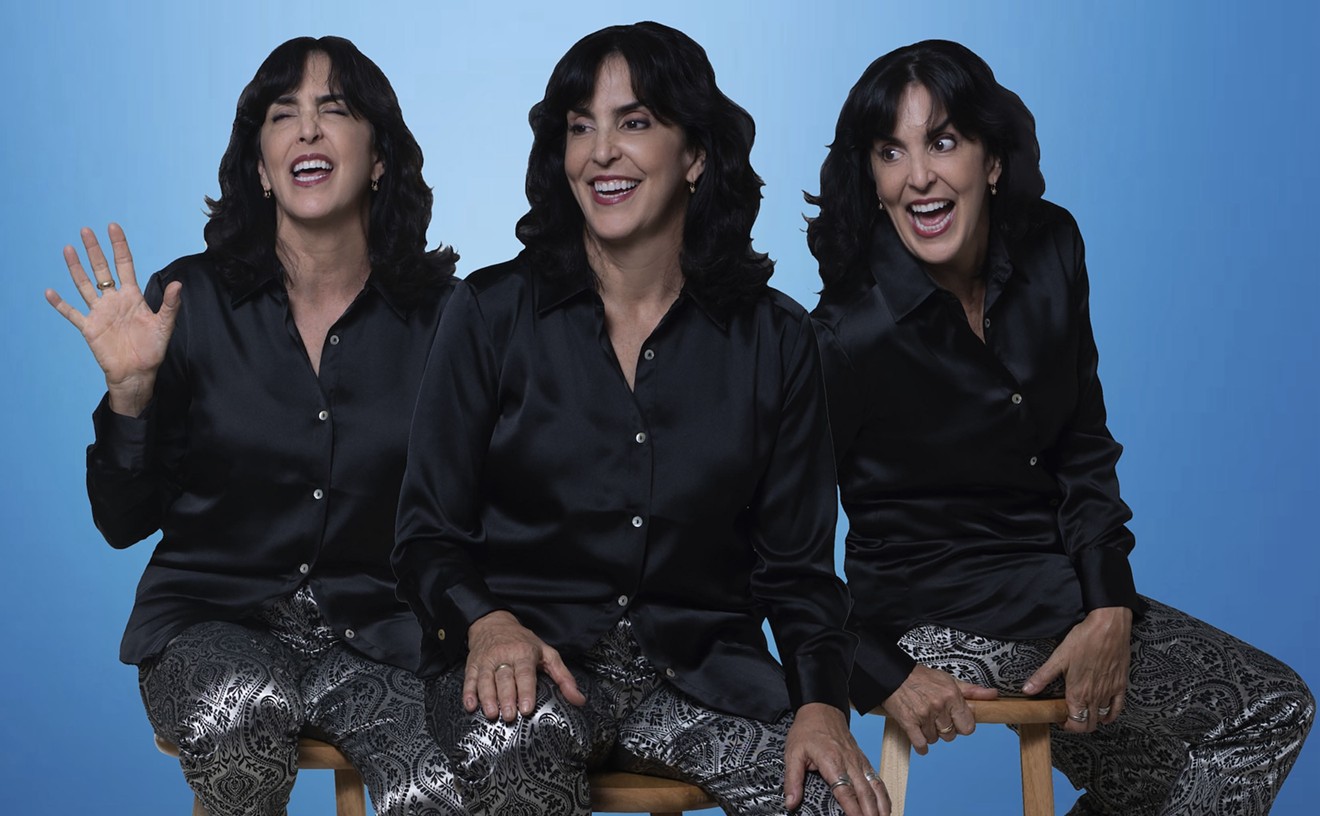"I feel like when someone introduces me onstage and they say, 'Get ready to laugh!' I'm backstage thinking 'You're killing me here,'" the humorist and author says. "If you say to people: 'Get ready, this is really funny, he's gonna slay you with laughter,' you're going to cross your arms across your chest and say, 'OK, show me how funny you are, funnyman.' I would always rather that it be my idea that something is funny, and I think most people feel that way."
Most people, however, don't draw belly-aching laughs out of situations that would make the next person cringe. A singular voice in American literature, Sedaris creates inimitable satirical prose rife with searing social critiques, self-deprecation, and personal anecdotes from his Greek Orthodox upbringing in North Carolina. He's the author of eight best-selling collections of essays and short stories, and his latest book, Theft by Finding, is a selection of his diary entries that so often inform his literary work. Sedaris, who splits his time between England and the United States, will make a pit stop in Miami this Thursday for An Evening With David Sedaris, presented by the Adrienne Arsht Center for the Performing Arts.
New Times spoke with Sedaris about his upcoming Miami performance, his take on political correctness in Trump's America, and his advice for marginalized writers who want to take their stories into the mainstream.
New Times: What can the audience expect to hear at your Miami performance?
David Sedaris: I have like three new stories that I've written since my last tour. I bought a house on the coast of North Carolina a few years ago, so I've written nine stories about it so far.
There are a lot of emotions swirling around on political correctness. What's your take? How far is too far?
You know, I don't want to say that anything is off-limits completely because you never know, there can be something and you think, Oh my God, no one can ever make a joke about that, but then they do and it's funny. Or sometimes they do and it's not a funny joke or a good joke. I think sometimes people don't even realize what racism is. I was reading a story I wrote, about when my sister was 12, and this black man exposed himself to her. And my sister Lisa was remembering this at the dinner table, and my father remembers that like it was yesterday, and he said, 'It was so big he had to turn around and get a second look at it.' I read about that in England, and this woman said, "Why did you have to say he was black?" and it's because it was 1968 in North Carolina, and it just so happens that at the time, it was seen as worse that a black guy was doing it than if a white guy was doing it, which makes my father's reaction of turning around more surprising. I'm just trying to describe the people in a story, and that's not racism.
How can writers write about their cultural heritage and experiences in a way that engages different audiences?
Well, when I was growing up, there weren’t any books about gay people in libraries. You had to read The Sun Also Rises or The Great Gatsby, and I had to relate to those characters some way. And I would think, Well, I'm a human, and so is this person. I think people want to see a mirror, they want to see their reflection in a book, and I feel so fortunate in a way to have come up when I did because it taught me to relate to people simply because they were human, and I would read the book and I would say, "Gosh, I've felt lonely; I can relate to this," or "I've felt fortunate; I can relate to this," or "I've been left out; I can relate to this." I didn't need the person to be my age and be gay and 22 and to have dark-brown hair and one eyebrow. I learned to relate simply because they were human beings.
How did you transcend the stereotypical label of being a gay author?
I think when I first started [reading out loud], there might have been like 20 people in the audience, and often it was my friends and I putting on shows, so out of 20 of those people, maybe 15 of them were gay. Then I was asked to take part in this reading, and there were 500 people and they were all straight. And I was really surprised that what I read went over really well.
When my first book came out, it was put in the gay section, and it's not where I wanted to be. I just wanted to be in the bookstore. And now that's where I am. But I think there's a difference. For me to get up and read a story about when I went to Hawaii with my boyfriend is completely different from saying, like, "Brad pulled his fist out of my ass and said, 'You want more?''' If I did that, I think the audience would be like, "I think we have that babysitter we should get back to." I don't feel like I'm hiding anything; I just think sex has never really been my subject. Maybe I was just fortunate to be coming up in a time when saying "boyfriend" didn't get an audience to walk out.
What's your writing process like?
Well, it takes a while to learn how to read a story. Oftentimes I'll read it for the first time and then I'll step back and say, "I'm still learning how to read it. I bet I can get that laugh; I just haven’t learned how to get it yet." I usually find that when I read something out loud while I'm working on it, then it's dead to me and I throw it away. So I just finish it and read it in front of an audience. Sometimes I'll read it to my boyfriend, and if he says, "That's awful; that's disgusting," then I know that people are going to love it. And if he loves it, then I know it's going to be boring to people.
What do you think of when you think about Miami?
I think of this hotel I stayed at about ten years ago. Maybe it was in South Beach, and everything was white and the floor was painted white and there was white bedding and silky white bed curtains and pristine white cushions. I dropped an aspirin on the floor, and it took me 20 minutes to find it. It was painfully chic.
An Evening With David Sedaris
8 p.m. Thursday, April 20, at the Knight Concert Hall at the Adrienne Arsht Center for the Performing Arts, 1300 Biscayne Blvd., Miami; 305-949-06722; arshtcenter.org. Tickets cost $45 to $75 via arshtcenter.org.











